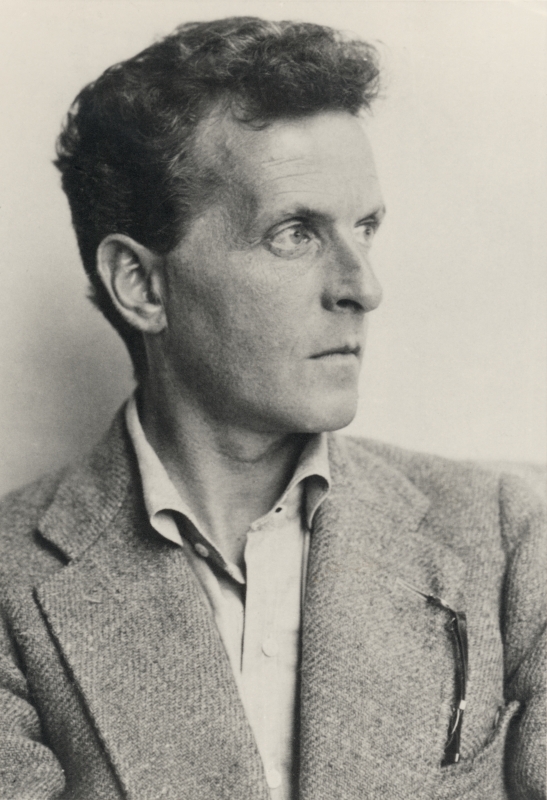Ludwig Wittgenstein nejznámější citáty
Ludwig Wittgenstein citáty a výroky
„Řešení problému života pozorujeme na tom, že tento problém zmizí.“
Tractatus Logico-Philosophicus
Zdroj: Konrad Paul Liessmann: Teorie nevzdělanosti, Academia 2009
„Člověk se musí probudit k údivu – a národy možná také. Věda je způsob, jak je zase poslat spát.“
Wittgenstein Culture and value, str. 5.
Ludwig Wittgenstein: Citáty anglicky
“The face is the soul of the body.”
Zdroj: Philosophical Investigations
“The world is everything that is the case.”
Original German: Die Welt ist alles, was der Fall ist.
1920s, Tractatus Logico-Philosophicus (1922)
Varianta: The world is all that is the case.
Kontext: The world is all that is the case. (1)
§ 129
Philosophical Investigations (1953)
Kontext: The aspects of things that are most important for us are hidden because of their simplicity and familiarity. (One is unable to notice something — because it is always before one's eyes.) The real foundations of his enquiry do not strike a man at all. Unless that fact has at some time struck him. — And this means: we fail to be struck by what, once seen, is most striking and most powerful.
“It is clear that the causal nexus is not a nexus at all.”
Journal entry (12 October 1916), p. 84e
1910s, Notebooks 1914-1916
Zdroj: Tractatus Logico-Philosophicus
“Language is a part of our organism and no less complicated than it.”
Journal entry (14 May 1915), p. 48
1910s, Notebooks 1914-1916
§ 43, this has often been quoted as simply: The meaning of a word is its use in the language.
Philosophical Investigations (1953)
Lectures of 1946 - 1947, as quoted in Ludwig Wittgenstein : A Memoir (1966) by Norman Malcolm, p. 43
1930s-1951
“Kierkegaard was by far the most profound thinker of the last century. Kierkegaard was a saint.”
As quoted in "Wittgenstein and Kierkegaard on the ethico-religious" by Roe Fremstedal in Ideas in History Vol. 1 (2006) http://www.ideasinhistory.org/cms/index.php?page=wittgenstein-and-kierkegaard-on-the-ethico-religious
Attributed from posthumous publications
Varianta: You could attach prices to ideas. Some cost a lot some little. … And how do you pay for ideas? I believe: with courage.
Zdroj: Culture and Value (1980), p. 52e
“One might say: Genius is talent exercised with courage.”
Man könnte sagen: „Genie ist Mut im Talent.”
Zdroj: Culture and Value (1980), p. 38e
Journal entry (1 May 1915)
1910s, Notebooks 1914-1916
Conversation of 1934
Personal Recollections (1981)
Zdroj: 1930s-1951, Philosophical Occasions 1912-1951 (1993), Ch. 7 : Remarks on Frazer's Golden Bough, p. 119
In a letter to Paul Engelmann (1917) as quoted in The Idea of Justice (2010) by Amartya Sen, p. 31
1910s
“I can well understand why children love sand.”
Although this quote has been attributed to Wittgenstein in Wittgenstein's Mistress by David Markson, there is no verifiable source from Wittgenstein that it can be traced back to.
Disputed
As I myself read.
Zdroj: Culture and Value (1980), p. 77e
drags out the language-game, or else does away with it.
On Certainty (1969)
Zdroj: 1930s-1951, Philosophical Occasions 1912-1951 (1993), Ch. 7 : Remarks on Frazer's Golden Bough, p. 119
Original German: Der Satz ist eine Wahrheitsfunktion der Elementarsätze
1920s, Tractatus Logico-Philosophicus (1922)
“Wisdom is passionless. But faith by contrast is what Kierkegaard calls a passion.”
Zdroj: Culture and Value (1980), p. 53e

